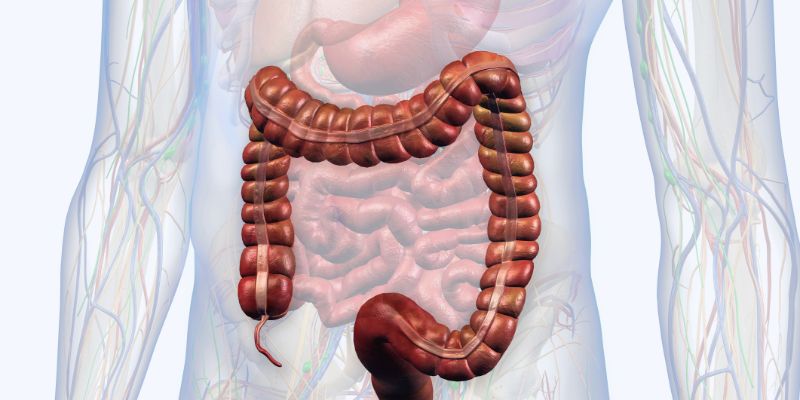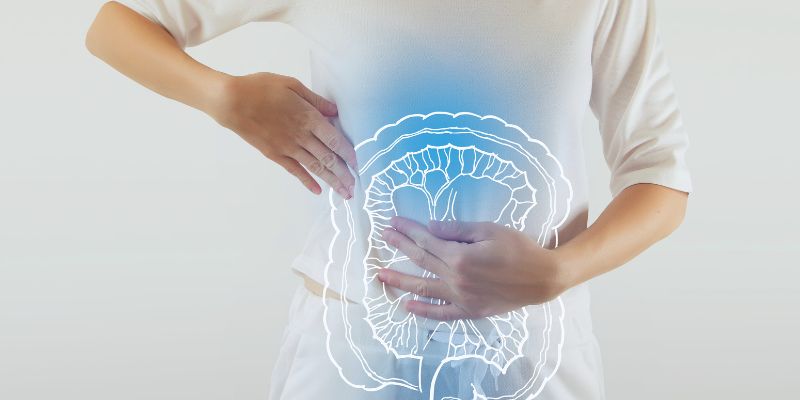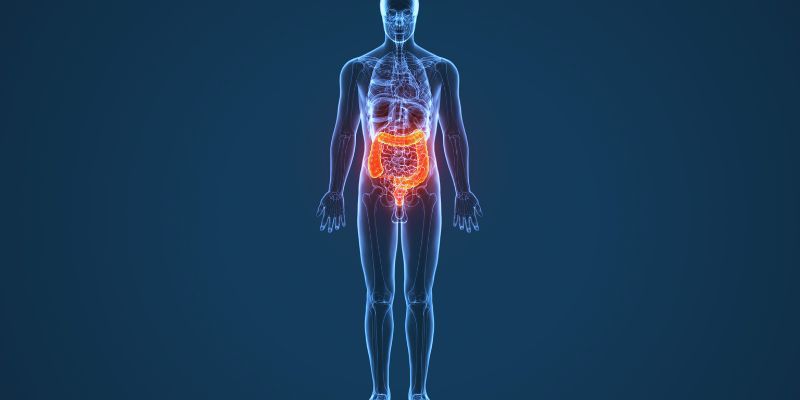Early Symptoms of Ulcerative Colitis and Prevention Strategies: A Guide
The walls of the colon and rectum get ulcerative colitis. It is an inflammatory bowel disease. Understanding its early symptoms will help to avert major issues and enhance quality of life. Many postpone diagnosis and treatment by confusing the first symptoms of Colon inflammation with minor digestive problems.
Although the exact cause of ulcerative colitis is unknown, elements including genetics, immune system malfunction, and environmental stimuli have some bearing. Effective illness management depends on early discovery, lifestyle modification, and medical advice. This guide will help you to act fast and preserve better digestive health by covering the symptoms, causes, and preventive actions for ulcerative colitisbowel disease.

Recognizing the Early Symptoms of Ulcerative Colitis
Early diagnosis and treatment of ulcerative colitis depend on the identified early symptoms. Though their degree varies, symptoms usually begin with minor problems that worsen with time. That is what to be aware of:
- Persistent Diarrhea: Among the first and most often occurring symptoms are chronic diarrhea. Blood or mucous may accompany it; they should not be disregarded.
- Abdominal Pain and Cramping: Often, lower abdominal pain corresponds with bowel motions. With time, this can get more regular and strong.
- Fatigue: Inflammatory diseases like Colon inflammation sap energy, so people feel tired even after a full night's sleep.
- Unexplained Weight Loss: Another early warning is losing weight without trying. This results from intestinal inflammation lowering nutritional absorption.
- Urgency to Defecate: Even when the bowels are empty, a persistent need to use the toilet can point to trouble.
- Fever: Fevers brought on by inflammation alert the immune system to a problem.
These symptoms could be misinterpreted as other digestive issues, so postponing a correct diagnosis. See a doctor immediately if you run into any mix of these symptoms. Early bowel disease diagnosis will help to lower problems and enhance results greatly.
What Causes Ulcerative Colitis Disease?
Managing and avoiding flare-ups in ulcerative disease depends on an awareness of what causes Research reveals various significant elements even if the precise cause of Colon inflammation is yet unknown:
- Genetic Predisposition: Those from families with a history of bowel disease are more likely. Some genes might make one more prone to inflammation.
- Environmental Triggers: In genetically predisposed people, factors including nutrition, air pollution, and chemical exposure can set off the disease. Furthermore, aggravating symptoms are stressful lives.
- Immune System Malfunction: A popular belief is that ulcerative colitis results from the immune system attacking the digestive tract lining. Chronic inflammation follows from this immunological response.
- Dietary Factors: Processed foods, excessive sugar intake, and poor fiber can increase symptoms even if the diet does not directly cause Colon inflammation. A good diet may slow down or lessen the severity of the illness for people at risk.
Knowing these elements will help you reduce risks. Lifestyle changes combined with medical treatment can manage this chronic illness.
Role of Diet in Managing Ulcerative Colitis
Preventing flare-ups and treating ulcerative colitis symptoms depend much on diet. Although no one food directly causes Colon inflammation, some dietary choices can aggravate the disorder. Here's how you might customize your diet:
- Include Fiber Cautiously: Though typically good, meals high in fiberfruits and vegetablesmay cause discomfort during flare-ups. Change your intake as necessary.
- Avoid Processed Foods: Foods heavy in trans fats, artificial sweeteners, and preservatives might aggravate bowel disease's inflammation.
- Hydration is Key: Maintaining intestinal integrity depends on staying hydrated. Drink lots of water throughout the day.
- Probiotic-rich Foods: Add yogurt, kefir, and kimchi to fermentable foods. These increase good bacteria, so supporting intestinal health.
- Identify Triggers: Maintaining a food journal will help determine what aggravates your conditions. Some respond to gluten, dairy, or spicy meals.
Medical counsel and a healthy diet can help greatly control Chronic intestinal disease symptoms.

Preventative Strategies for Ulcerative Colitis
Prevention aims to lower the chance of Chronic intestinal disease worsening or occurring. Little lifestyle changes can go a long distance. These are some rather successful techniques:
- Stress Management: Chronic stress is a well-known aggravation of bowel disease. Yoga, deep breathing, or meditation, among other relaxing methods, can help manage inflammation.
- Quit Smoking: Smoking aggravates symptoms rather than directly causes ulcerative colitis. Stopping smoking makes one generally healthier.
- Regular Exercise lowers stress and strengthens the immune systemeven little pursuits like swimming or walking help.
- Maintain a Healthy Weight: There is more bodily inflammation connected to obesity. Good weight control lowers your risk.
- Routine Medical Check-ups: See a doctor routinely for tests if bowel disease runs in your family.
These guidelines will help you avoid or better control Chronic intestinal disease and related issues.
Medical Treatments and Long-term Management
The degree of symptoms determines the treatment approach for chronic intestinal disease. The main choices are like this:
- Medication: Anti-inflammatory medications like mesalamine are usually prescribed to lower symptoms. Corticosteroids and immunosuppressants are used in more extreme instances.
- Biologic Therapies: These cutting-edge medicines target particular immune system components to reduce inflammation. They are generally only given to people who don't improve with regular medicine.
- Surgery: Extreme situations could call for the colon to be removed. Although it eliminates symptoms, it's usually a final choice.
- Regular Monitoring: Regular colonoscopies allow one to track inflammation and find any precancerous alterations.
Effective management of Chronic intestinal disease depends on lifestyle modifications combined with medication therapy.
Emotional and Mental Health in Ulcerative Colitis Patients
Having Intestinal inflammation can cause problems with mental health. Daily living and emotional well-being suffer from chronic symptoms, including pain, tiredness, and frequent bathroom visits. Here are strategies for handling:
- Seek Support: Join support groups or contact people suffering from bowel disease. Experiences can be comforting and useful guides.
- Counseling & Therapy: A mental health expert can assist you in handling the condition-related anxiety or depression.
- Practice Self-care: Participate in joyful and leisureful hobbies. That raises general living quality.
Keeping mental health and controlling physical symptoms is vital. Better results follow from a comprehensive strategy.
Conclusion:
Although ulcerative colitis is a difficult disorder, early identification, and aggressive treatment can greatly affect it. Knowing early signs and what causes Intestinal inflammation disease helps you to take charge of your health. From lifestyle adjustments to medicinal treatments, a comprehensive strategy helps properly manage this bowel disease. Although Intestinal inflammation presents difficulties, by implementing preventative actions, you can lower symptoms and lead a happy life.












